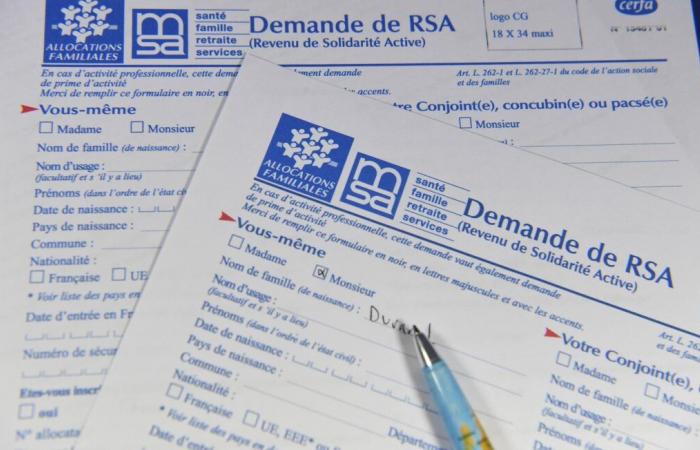
Automatic registration with France Travail, 15 to 20 hours of activity per week… Since January 1, the conditions for benefiting from active solidarity income (RSA) have changed for the nearly two million people concerned. 20 Minutes takes stock.
Who can benefit from RSA?
As a reminder, the RSA allows people without resources a “minimum level of income which varies according to the composition of the household”, recalls the government website. It is open, under certain conditions, to people aged at least 25 and to young professionals aged 18 to 24 if they are single parents or have a certain length of professional activity. Currently, the RSA amounts to 635.71 euros for a single person, without dependents.
Automatic registration with France Travail
Since January 1, 2025, each person receiving RSA, i.e. 1.8 million people, is “compulsorily and automatically” registered with France Travail, formerly Pôle emploi. Before, only 40% of beneficiaries were registered there, according to France Info.
Each beneficiary must then “sign an engagement contract including an action plan specifying their social and professional integration objectives”, indicates the government website.
New job seekers are then classified in a “waiting category”, “G”, created specifically for them. Following an orientation interview, they are then divided into one of the categories, ranging from A to F.
Fifteen to twenty hours of activities per week to obtain the RSA
The objective of the RSA reform, promised during Emmanuel Macron’s presidential campaign in 2022, is to “bring beneficiaries closer to employment”. With this in mind, they then sign “an engagement contract” in order to carry out between fifteen and twenty hours of weekly activities and obtain their allowance.
The government website reminds us that this activity is not “paid employment” nor “volunteer” work. These fifteen to twenty hours per week can be illustrated by obtaining a driving license, immersion in a company to refine your professional project or even participation in activities in the associative sector.
A sanction system from the first half of 2025
If the beneficiary does not carry out these scheduled hours of activities, the payment of the RSA may be suspended, indicates France Info. The allowance can be recovered if the person honors their commitments again, with a principle of retroactivity. This sanction, called “suspension-remobilization”, will come into force in the first half of 2025.
Certain RSA beneficiaries, such as people suffering from a disability or single parents with children and no childcare solution, are exempt from these weekly activity hours. Accommodations can also be put in place for people “facing difficulties in their personal and family life”.
Criticisms following the experiments
After several months of experimentation in 49 departments before this generalization, the results on the effectiveness of this system are mixed. A study published in November by the Ministry of Labor, which made it possible to follow more than 500 participants, in eight different territories, between July 2023 and July 2024, reveals certain limitations.
All our articles on the RSA
If the ministry noted that the support had “overall positive effects on the situation of beneficiaries”, with “54% of beneficiaries having access to employment at a given moment”, the objective of fifteen to twenty hours of he weekly activity “stimulates reflections and debates among professionals and beneficiaries”.
“In one year, the rate of non-recourse to the RSA increased by 10.8% in the departments which are experimenting with the reform, while it decreased by 0.8% in the other departments,” denounced Secours catholique, cited by TF1. The association is particularly concerned about an increase in poverty and the “risk of free work” which “drags the labor market downwards”.





